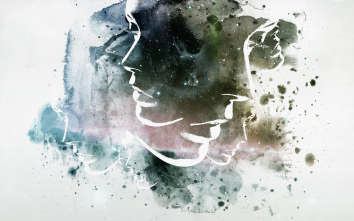
“Accessibility” is the buzz word these days, they talk about the inclusion of the disabled in the mainstream very emotionally and enthusiastically. Seminars and conferences are organized round the year to discuss the issues of these “unfortunate” people and top leaders narrate the sorry plight of this “left out” class sympathetically in their speeches. You would see television programs and discussions on and off - on one hand, showing how insensitive peoples and governments are towards the disabled, and on the other, they also try to show you how inspiring the success of some of these differently-abled persons can be. These extraordinary, out-of-the-world disabled persons are praised and glorified as role models for the entire humanity. Very moving, very interesting, isn’t it?
Centuries have passed, but the brutal truth is that society’s perception of the disabled has virtually remained unchanged. They are either Powerless, Helpless and Dependent, a Burden on the earth or Exceptional, God-like, possessing Superhuman qualities. Literature has also corroborated with this view. Most disabled characters are either poor and weak, worthy of compassion and mercy, or exceptionally powerful or scholarly. Disability has been seen as a result of sins one had committed in their previous birth, or as a symbol of negative qualities, of vices. Dhritrashtra, the blind king, was a poor ruler who overlooked the wrong-doings of his sons. On the other hand, Ashtavakra was a scholar who defeated all other learned people in Shastrartha wherever he went. The western literature has had a tendency to show disabled characters in negative light, most crooked and wicked men like Captain Hook and Long John Silver etc are extremely cruel, bad people. Most witches have some or the other limb missing to give them a weird, frightening look. Other disabled characters like Tiny Tim and Quasimoto deserve all the pity and sympathy one could muster. The disabled are never normal human beings if we go by our literature.
Am I being too skeptical? Well, let me narrate a small incident. Having lost my eyesight, I was learning to live afresh. Vision is a major contributing factor as far as our sensory perception is concerned. One uses all the sensory organs to accomplish their tasks, from small day-to-day routines to complex, difficult jobs. Yet studies show that our vision is responsible for a lion’s share here, nearly 80% of the tasks are performed using our eyes. One has to readjust so many things, relearn so many skills while learning to live without vision. Anyways, the story goes like this: I had gone with my friends to a public place. We were sitting on a bench when the friends went away to bring some eatables leaving me alone there. An elderly person was having a conversation with a young man on the adjacent bench. The conversation was centered around the marriage of the elderly person’s daughter. The younger one wanted to know about the kind of bridegroom he was looking for. The man blatantly pointed at me and said:
“Son, you are wise enough to find a good one for my daughter. Now look at that person. He is good looking, seems well educated and from a good family, but do you think anyone would give his daughter to such a person?”
And that is just one aspect. If a disabled person is living a normal life, earning something and accomplishing petty, daily jobs independently; people (especially the media) often make him look like an exceptional person who has achieved something unusual, something extraordinary. What if I can use computers - technology helps me do that. What if I accomplish all the daily routines, practice has enabled me to be self-sufficient. I don’t deserve any special mention or praise for that. I am just a normal human being who does require some special apparatus or special conditions to perform certain tasks. I don’t need to be pitied if I need some assistance, and I don’t need to be glorified if I am able to do some kind of an ordinary thing, like completing my education or getting a good job. Believe me, there is nothing romantic about being disabled; a Viklang is certainly not a Divyang. However, they aren’t a burden on the society either. The disabled are normal human beings and deserve to be treated like that. Yes, they are different, but so are we all.
There is a need to understand the disabled people, not to sympathize with them or to pity them or unnecessarily glorify them. They are an integral part of the society requiring an enabling environment to contribute equally towards society’s progress. It will be great if you go out today and try to befriend and know about a disabled person, his/her qualities and talents, fears and whims. But leave your preconceived ideas back at home before getting in touch with them. You will soon realize they are just like you, a normal human being. They have their limitations - but then each one of us too does, but we all learn to live with them.
 Never miss a story from us, get weekly updates in your inbox.
Never miss a story from us, get weekly updates in your inbox.